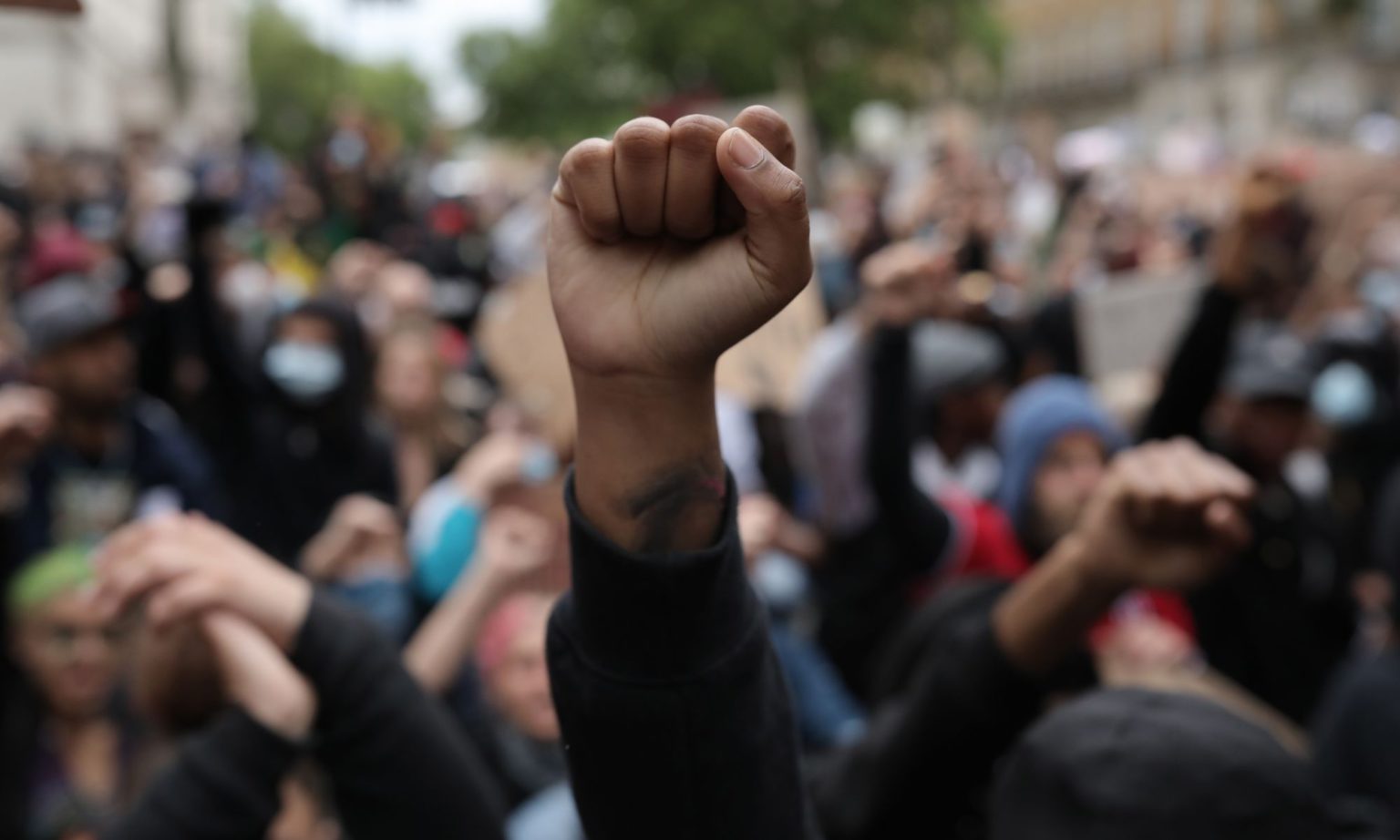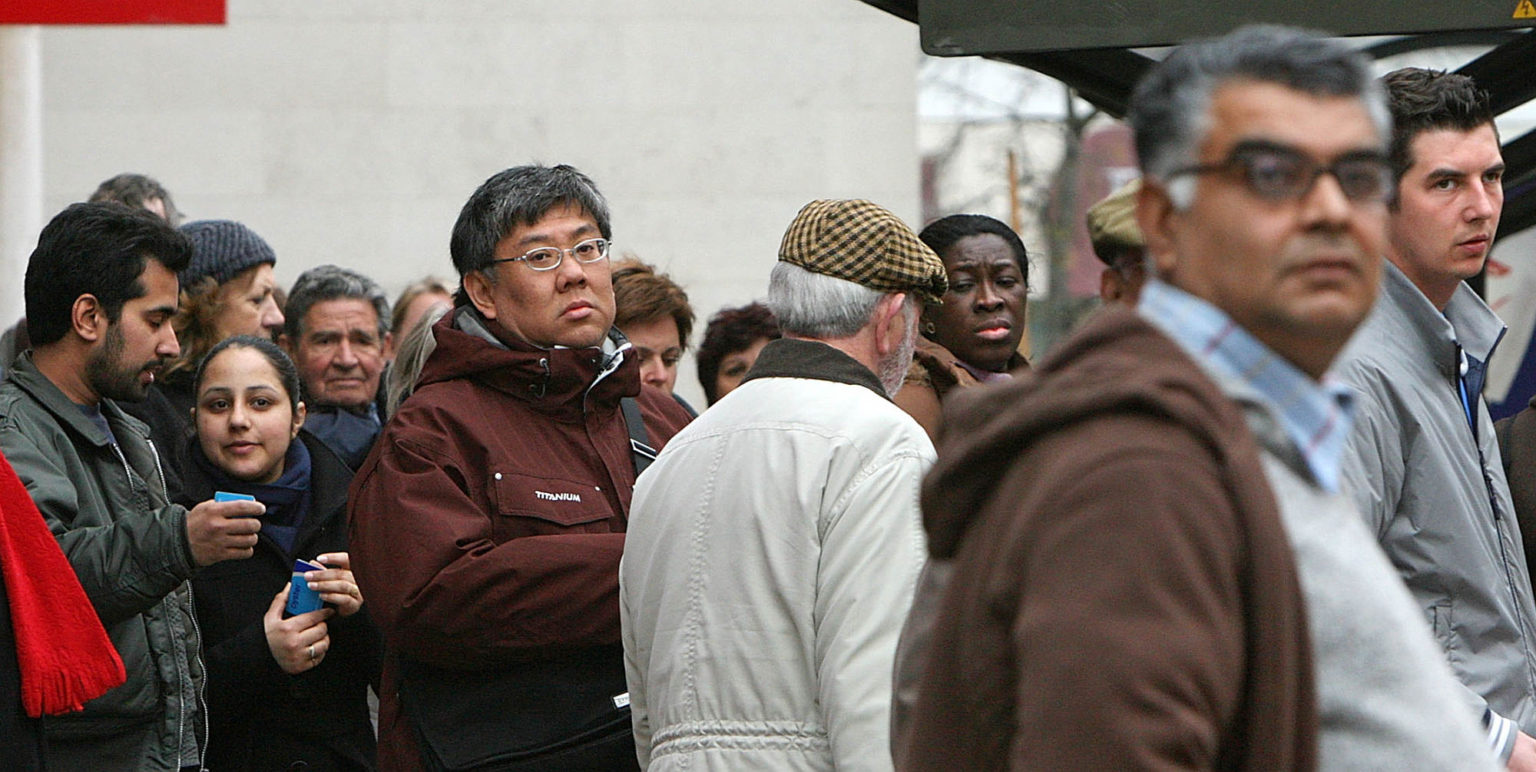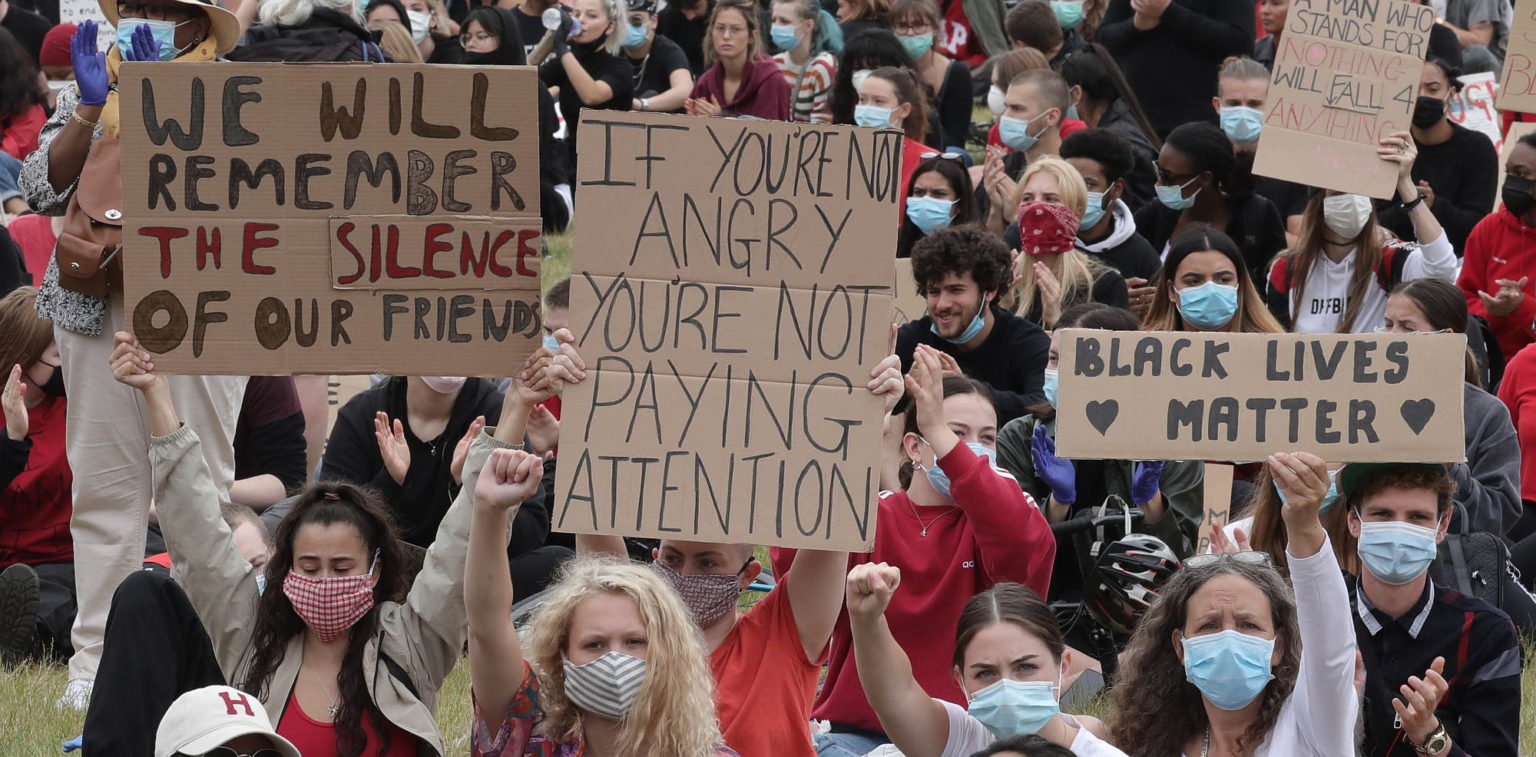
Long-read
The tyranny of racial groupthink
Individuals are being routinely reduced to their skin colour.
Want to read spiked ad-free? Become a spiked supporter.
One of the few things we all seem to agree on today is that we live in a polarised age. Polarisation cements groups while pressurising the individual. I was persuaded of this time and again while interviewing mixed-race Britons for my new book Biracial Britain, which explores a category of individuals obliged from birth to navigate various racial groups in their everyday lives. ‘The politics of today complicate the lives of mixed-race people. Some see this as a crunch moment where you have to declare which tribe you are loyal to’, Ralph, the 23-year-old son of a white English father and Nigerian mother, told me. ‘I’m against racism and the far right, but that doesn’t mean I’m for identity politics. They both share the same thought patterns, they both seek to essentialise human beings, to put us in racial boxes’, he added. Many other mixed-race Britons I spoke to voiced similar sentiments about the stifling atmosphere of our current race debate. One that submerges the individual in generalisations and elevates groupism.
‘White privilege’, ‘black oppression’ – these are the kinds of grand generalisations with which we are all familiar by now. They are the sweeping concepts we are encouraged to use to interpret our world – a world in which we don’t realistically live as individuals, but as ‘black people’, ‘white people’, ‘Asians’, ‘people of colour’ et al. The only ideas that are deemed to matter are the ‘structures’ and ‘systems’ that underpin the Big Picture, while everything else is deemed pretty much irrelevant detail. In the world of these grand theories and totalising narratives on race, the individual is relegated to the background.
The important question, of course, is why this has happened, especially given that the desire to be treated as individuals, not nameless members of this or that group, is a pretty universal one. I find it difficult to imagine there are people of any ethnic or racial background who do not want to be viewed primarily as individuals, including those most responsible for popularising the sweeping groupist language of our times. I find it hard to believe many would disagree with the words of Czesław Miłosz, the Polish Nobel-winning writer, who, in reference to the soul-numbing language of the communist ideologues who ran Cold War Eastern Europe, said: ‘The true enemy of man is generalisation.’ Nothing quite diminishes us more. So why then has language obscuring our individuality taken such a strong hold in what is supposed to be an age of empathy? After all, to empathise requires, by definition, seeing a human individual, not a group or statistic.
Generalising language is obviously a practical necessity when discussing society. It is difficult to envisage a public debate on any issue affecting millions of people without the use of some sweeping language meant to encapsulate popular experiences. And just to be clear, I too am guilty of bandying around terms like ‘black people’ or ‘white people’ to describe, in effect, millions of individuals with different lives, problems and thoughts. I do this because it is a convenient mental shortcut with which to engage readers, which of course doesn’t make it any more right or precise. Another excuse I have is that sweeping definitions like ‘institutional racism’ or ‘structural inequalities’ can be very useful (and again convenient) in highlighting what are sometimes genuinely generalisable societal realities regarding race or other issues.

And from the point of view of those who are, or aspire to be, leaders of identity groups, the generalising language of slogans can be very effective in creating group cohesion, usually by focusing them on a uniting enemy. As I wrote in Biracial Britain, black unity has really only ever existed where black leaders could credibly point to the threat of white oppression, which is why Africa has been a divided continent ever since it lost its uniting enemy – European colonialists.
So while I am not here to pretend it is only others who deploy generalising language, and I accept that generalisations clearly serve the strategic purposes of group leaders, I do think the race debate has gone way too far in this sphere. We now effectively discuss human beings primarily as members of this or that racial group, as if their skin colour tells us the most important thing we need to know about their everyday lives and how they view the world. Because ‘the black community thinks X’ and ‘Britain’s ethnic minorities say Y’.
This approach is not just overly reductionist. It also actively encourages groupthink while discouraging originality of thought. It fosters an atmosphere in which, constantly told what tribe X thinks about such and such, pressure is applied on individuals to conform with the in-group line or risk marginalisation. This is no banal risk. Fear of isolation is a particularly powerful motivator of human behaviour. It helps create what German political scientist Elisabeth Noelle-Neumann famously called a ‘spiral of silence’, where, fearing social isolation, people refrain from saying what they really think if they perceive their views to be contrary to dominant opinions around them. According to Noelle-Neumann, this leads to self-censorship because most people place a greater premium on not being isolated than on their own judgment of issues.
This fear of isolation is accompanied by the doubts we all have – however hard we try to hide them – about our own capacity for good judgment. If everyone around me is saying X, perhaps I’m wrong to think Y? The combination of this (generally healthy) self-doubt and fear of isolation is what renders us vulnerable to group disapproval for failing to toe the line. The way this works in practice, according to the spiral-of-silence theory, is that we start by listening to what others are saying on an issue, ‘assessing the distribution of opinions for and against our ideas’, as well as the ‘the strength of commitment, the urgency, and the chances of success of certain proposals and viewpoints’. We listen even more carefully when, like today, we find ourselves in the midst of a fierce struggle between conflicting positions and have to consider where we stand. Moments, that is, when we feel forced to ‘choose a side’, as Ralph and other mixed-race Britons complained about in Biracial Britain.
If we share the opinion that seems to be winning the battle, our self-confidence grows and we express our views freely, safe in the knowledge this presents no risk of marginalisation. But if our views appear in the minority, or to be rapidly losing ground and headed for niche status, then we become less confident of those views and less willing to express them publicly. This is how we arrive at a situation where some speak their views loudly while others stay silent, triggering a spiralling process that increasingly establishes certain opinions as the prevailing ones, leading to their eventual domination and, ultimately, to groupthink.
Naturally, this process doesn’t inhibit all people equally. Those with very strong positions in society irrespective what others think of them – billionaires for instance – are unlikely to spend sleepless nights worrying that they face isolation. And every society has its contrarians who relish againstism, and whose sense of self-worth is often built precisely on refusing to ever be where popular opinion is on an issue. But such exceptions aside, the spiral-of-silence theory posits most people will be very wary of social isolation.
The theory has a powerful evolutionary logic to it. Us placing more importance on avoiding isolation than on our own judgment ‘appears to be a condition of life in human society; if it were otherwise, sufficient integration could not be achieved’, stated Noelle-Neumann. Indeed, if we were all to prioritise saying exactly what we think in public, I suspect we’d soon end up in mass punch-ups and general anarchy.

Add the fact we live in a social-media era where it is much easier for people to assess which opinions appear to be winning by virtue of their retweets, likes and reposts, and it is clear that encouraging original thought – and most importantly the public expression of it – is not going to be an easy task. Especially not when it comes to an issue as controversial as race. So are we to be condemned to these groupthink-fostering generalisations meant to explain the experiences of all 66 million of us on this island? In other words, where do we go from here?
First of all, we start by critically assessing the role being played in all this by the media. Most especially large television networks, radio stations and newspapers. Outside our circle of family and friends, it is still mostly via ‘traditional’ media that we get our sense of where public opinion is on major issues. TV remains the most popular way to access news in Britain. Most importantly, traditional media like TV and radio are not just providers of news, they are the chief organisers of public debate. Crucially, they are the organisers of the most prestigious kinds of debates, the ones people think really matter. There is a different kind of prestige attached to being invited to debate race on BBC and debating it with your followers on Twitter. So people pay quite close attention to which kind of persons and arguments are accorded the validation of frequent presentation in traditional media.
I think it safe to say that the kinds of arguments media these days tend to favour are the kind they believe will attract maximum audience attention. Clicks. Video clips that can go viral. Controversial statements that will get people talking, even if that means them at each other’s throats. Even if it means further polarising an already polarised society. Even if it means entrenching generalisations and groupthink – ‘White people are racists’, ‘Muslims are not integrating’. The larger the groups of people who might take offence or conversely delight at these nonsensical generalisations, the better. For this means the greater the number of people who will likely react with comments, retweets and discussions. ‘Audience engagement’ it’s called, and media debates are often deemed successful or not by higher-ups using this metric. Because traffic drives ad revenues and so on.
I’ve worked in media myself, so I really don’t mean to moralise here. My point is that we cannot realistically expect any improvement in the current race debate or a reduction in the proliferation of sweeping generalisations and groupthink as long as profit remains the primary goal of media. Nuance is simply not as profitable as generalisation. I don’t have any easy answers, but if we do want a healthier, more nuanced and original debate, then we have to try and figure out new media models that balance the healthy need for profit with the goal of fostering an atmosphere conducive to such debate. This will send a signal to the rest of society that there are various ways to think of various issues, including the issue of race, that we don’t need to be so reliant on catch-all sociological concepts. That while grand narratives and big-picture theories are sometimes needed to make sense of complex human realities, we recognise that for the individual, the small picture is the big picture. And that we realise that stuck in the middle of all these group conflicts is the individual trying to survive.
It is the genius of original thought that has often provided the greatest breakthroughs for humanity. ‘The bravest thing to be is an individual. Many people pretend to be individuals, but they’re not really. They’re just doing what a particular group expects them to do in order to be accepted.’ So Eugene, the 65-year-old son of an African-American father and white British mother, told me in Biracial Britain. He said his one regret was spending most of his life seeking group acceptance instead of developing his own individual personality. ‘But that’s how life is. You spend most of it searching for the wrong things, and by the time you realise what’s truly important, you’re about to die’, he said. As individuals and as a society, let’s not forget what is truly important here. It is that the group should exist for the individual, not the other way around.
Remi Adekoya is a Polish-Nigerian writer and political scientist. His new book Biracial Britain: A Different Way of Looking at Race is published by Hachette. (Order this book from Amazon(UK).)
Images by: Getty.
Celebrate 25 years of spiked!
A media ecosystem dominated by a handful of billionaire owners, bad actors spreading disinformation online and the rich and powerful trying to stop us publishing stories. But we have you on our side. help to fund our journalism and those who choose All-access digital enjoy exclusive extras:
- Unlimited articles in our app and ad-free reading on all devices
- Exclusive newsletter and far fewer asks for support
- Full access to the Guardian Feast app
If you can, please support us on a monthly basis and make a big impact in support of open, independent journalism. Thank you.









Comments
Want to join the conversation?
Only spiked supporters and patrons, who donate regularly to us, can comment on our articles.